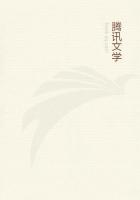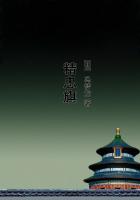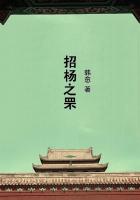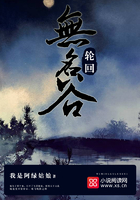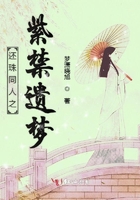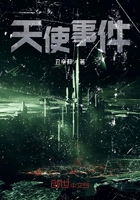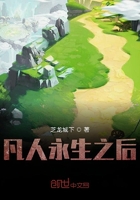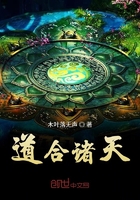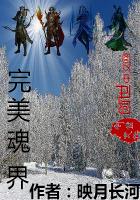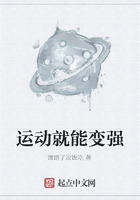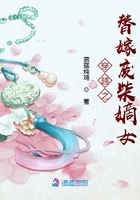In the first place, the writer of the book of Matthew does not say a syllable about it; neither does the writer of the book of John.This being the case, is it possible to suppose that those writers, who affect to be even minute in other matters, would have been silent upon this, had it been true? The writer of the book of Mark passes it off in a careless, slovenly manner, with a single dash of the pen, as if he was tired of romancing, or ashamed of the story.So also does the writer of Luke.And even between these two, there is not an apparent agreement, as to the place where this final parting is said to have been.[The last nine verses of Mark being ungenuine, the story of the ascension rests exclusively on the words in Luke xxiv.51, "was carried up into heaven," -words omitted by several ancient authorities.-- Editor.]
The book of Mark says that Christ appeared to the eleven as they sat at meat, alluding to the meeting of the eleven at Jerusalem: he then states the conversation that he says passed at that meeting; and immediately after says (as a school-boy would finish a dull story,) "So then, after the Lord had spoken unto them, he was received up into heaven, and sat on the right hand of God." But the writer of Luke says, that the ascension was from Bethany; that he (Christ) led them out as far as Bethany, and was fiarted from them there, and was carried up into heaven.So also was Mahomet: and, as to Moses, the apostle Jude says, ver.9.That 'Michael and the devil disputed about his body.' While we believe such fables as these, or either of them, we believe unworthily of the Almighty.
I have now gone through the examination of the four books ascribed to Matthew, Mark, Luke and John; and when it is considered that the whole space of time, from the crucifixion to what is called the ascension, is but a few days, apparently not more than three or four, and that all the circumstances are reported to have happened nearly about the same spot, Jerusalem, it is, I believe, impossible to find in any story upon record so many and such glaring absurdities, contradictions, and falsehoods, as are in those books.They are more numerous and striking than I had any expectation of finding, when I began this examination, and far more so than I had any idea of when I wrote the former part of 'The Age of Reason.'
I had then neither Bible nor Testament to refer to, nor could I procure any.My own situation, even as to existence, was becoming every day more precarious; and as I was willing to leave something behind me upon the subject, I was obliged to be quick and concise.The quotations I then made were from memory only, but they are correct; and the opinions I have advanced in that work are the effect of the most clear and long-established conviction, -- that the Bible and the Testament are impositions upon the world; --that the fall of man, the account of Jesus Christ being the Son of God, and of his dying to appease the wrath of God, and of salvation by that strange means, are all fabulous inventions, dishonourable to the wisdom and power of the Almighty; -- that the only true religion is deism, by which I then meant and now mean the belief of one God, and an imitation of his moral character, or the practice of what are called moral virtues;-- and that it was upon this only (so far as religion is concerned) that I rested all my hopes of happiness hereafter.So say I now -- and so help me God.
But to retum to the subject.-- Though it is impossible, at this distance of time, to ascertain as a fact who were the writers of those four books (and this alone is sufficient to hold them in doubt, and where we doubt we do not believe) it is not difficult to ascertain negatively that they were not written by the persons to whom they are ascribed.The contradictions in those books demonstrate two things:
First, that the writers cannot have been eye-witnesses and ear-witnesses of the matters they relate, or they would have related them without those contradictions; and, consequently that the books have not been written by the persons called apostles, who are supposed to have been witnesses of this kind.
Secondly, that the writers, whoever they were, have not acted in concerted imposition, but each writer separately and individually for himself, and without the knowledge of the other.
The same evidence that applies to prove the one, applies equally to prove both cases; that is, that the books were not written by the men called apostles, and also that they are not a concerted imposition.As to inspiration, it is altogether out of the question; we may as well attempt to unite truth and falsehood, as inspiration and contradiction.
If four men are eye-witnesses and ear-witnesses to a scene, they will without any concert between them, agree as to time and place, when and where that scene happened.Their individual knowledge of the thing, each one knowing it for himself, renders concert totally unnecessary; the one will not say it was in a mountain in the country, and the other at a house in town; the one will not say it was at sunrise, and the other that it was dark.For in whatever place it was and whatever time it was, they know it equally alike.
And on the other hand, if four men concert a story, they will make their separate relations of that story agree and corroborate with each other to support the whole.That concert supplies the want of fact in the one case, as the knowledge of the fact supersedes, in the other case, the necessity of a concert.The same contradictions, therefore, that prove there has been no concert, prove also that the reporters had no knowledge of the fact, (or rather of that which they relate as a fact,) and detect also the falsehood of their reports.Those books, therefore, have neither been written by the men called apostles, nor by imposters in concert.-- How then have they been written?

